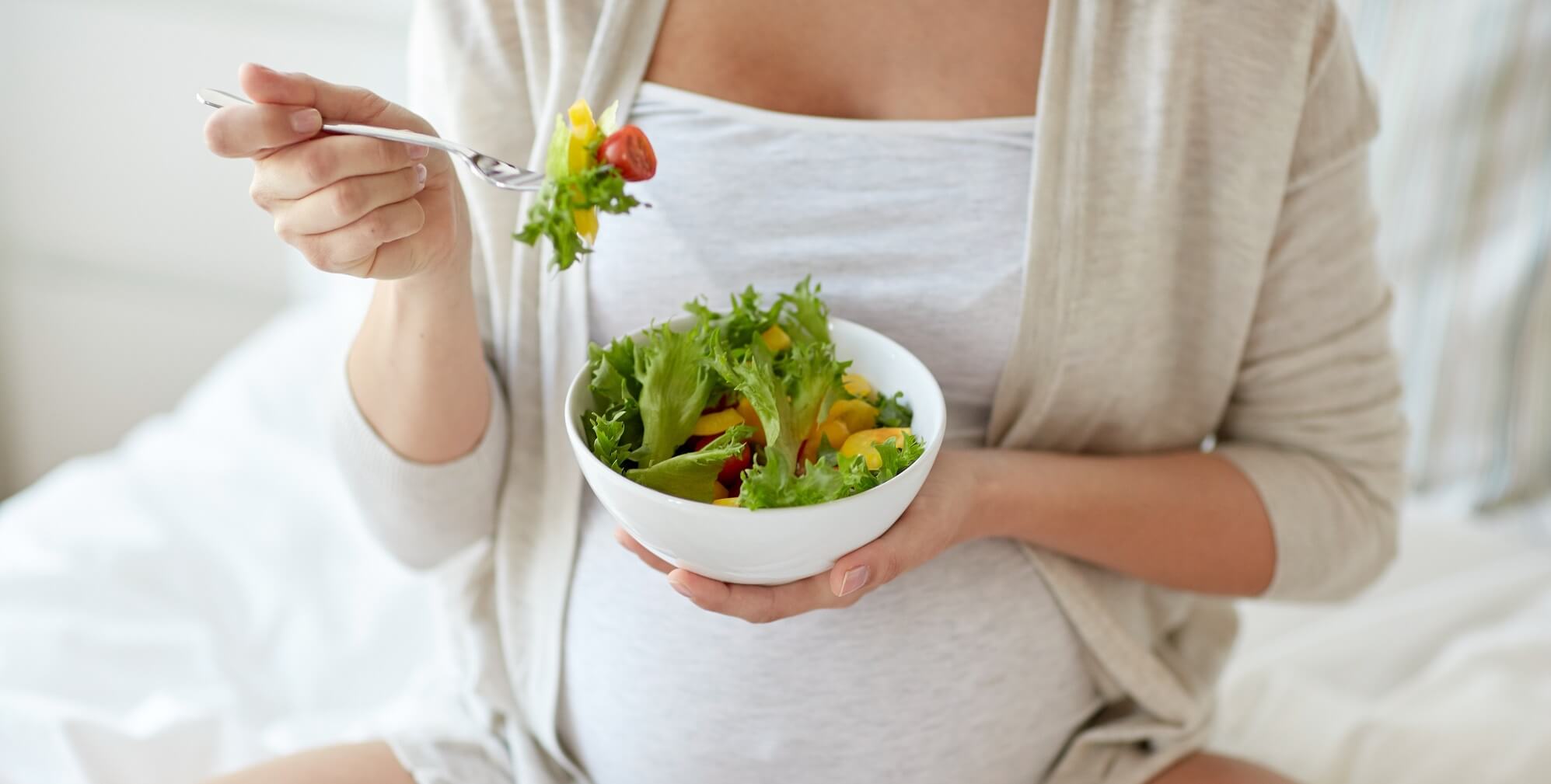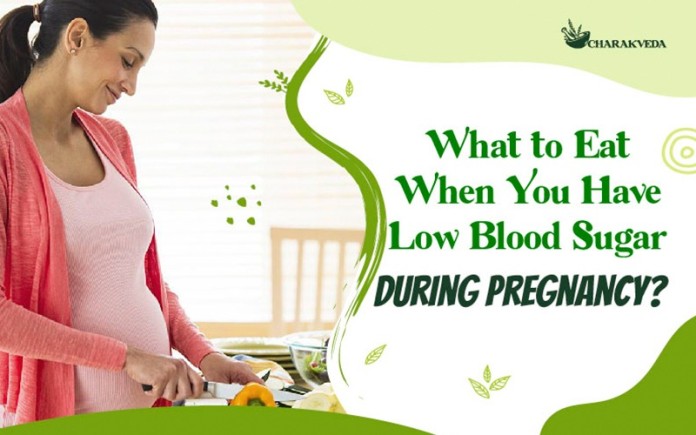When you get pregnant, your body goes through a lot of hormonal changes which manifest both externally and internally. You might get that pregnancy glow or might have to deal with acne and pimples all through the pregnancy months. Hair loss is also something that many women deal with. The changes in hormones can also affect the usage and production of insulin in your body. Insulin is a hormone that regulates your blood sugar levels and also determines the energy in your life.
Gestational diabetes is the most common condition that develops in pregnant women which can lead to low blood sugar during pregnancy. This condition is medically known as hypoglycemia. This occurs when your body becomes insensitive to insulin and stops using it productively. Gestational diabetes occurs only in pregnant women, which means that pre or post-pregnancy you might not suffer from the same.
Some of the reasons might include:
- You do not eat frequent meals or include foods in your diet which may not be able to stabilize your sugar levels. Your baby is siphoning glucose from your reservoirs and your body is generally good at compensating the same, but if that is not happening, you might face hypoglycemia.
- When you exercise too rigorously and use up all the glucose without replenishing it with some carbs, you might go through this condition.
- If you are diabetic and the high doses might be bringing down the sugar levels to a very low making you feel hypoglycemic.

Symptoms of Hypoglycemia
Whether you are pregnant or not, the low sugar level symptoms are the same in every human being.
- Feeling of light-headedness
- Nausea and vomiting
- High heartbeat or anxiety
- Tingling sensation around the mouth
- Sweating and pale skin
- When the glucose levels go extremely low, a person might also lose consciousness or faint.
How is low blood sugar during pregnancy connected with diabetes?
Hypoglycemia can occur in any pregnant woman but it mostly occurs in women who have a pre-existing condition of diabetes and are taking insulin to manage that. A study showed that at least 23% of pregnant women with type-1 diabetes had at least one severe hypoglycemia attack. A severe attack here would mean losing consciousness.
The study also showed that 19 to 44 per cent of women with any kind of diabetes, type -1, 2 or gestational diabetes go through the condition of low blood sugar during pregnancy.
Risk Factors of Gestational Diabetes
- Pre-existing Diabetes: As mentioned above, women with diabetes are at a higher chance of dealing with low blood sugar during pregnancy, especially with type-1 diabetes.
- Trimester: Studies have shown that pregnant women are at a higher risk of having a hypoglycemia attack during their first trimester. This could be due to severe morning sickness that makes them vomit everything they eat. Nausea also makes it difficult to keep up with the regular and frequent eating while removing many food items to eat on the list as they might induce the puking again.
- If you have had a hypoglycemic attack before pregnancy.
- Many underlying conditions may cause a lack of appetite keeping you from eating frequently.
- If you have malnutrition, you have higher chances of having a low blood sugar condition. It is essential to meet the daily calorie requirement to replenish your body along with providing your growing baby with the daily nutritional requirement.
Also Read: 7 Apple Cider Vinegar Benefits You Must Know
How to maintain healthy glucose levels?
An occasional episode of low blood sugar during pregnancy might not cause any harm to your baby. But recurring attacks might be problematic. It can cause seizures and coma as well. There are also complications during birth and your baby might be born with the same condition or develop it soon after. Here are a few steps you can take to make sure that you can maintain a healthy level of glucose in your blood.
- Eat frequent meals. Make sure that you follow a diet chart that helps you intake the required amount of calories needed for both you and your baby.
- Do not exhaust yourself with aggressive exercising. Talk to your doctor and perform only the suggested exercises. Make sure that you listen to your body and do not go overboard with this.
- Always keep quick-energy snacks with you at home or while you are travelling. Carry fruits, juices, can of soda, hard candy or glucose tablets. You can also keep some bedside snacks and eat them if you get awake at night. Choose foods that can provide your body with at least 15gms of fast-acting carbohydrates.
- For emergency purposes, your doctor might also recommend keeping a glucagon kit which consists of the synthetic form of glucagon hormone and a syringe to administer the same.
- Monitor your glucose level regularly. It should not below 70 mg/dL. Anything below 60gm/dL is considered as a hypoglemia attack.

Foods to Eat in Gestational Diabetes
- Include as much of the seasonal and fresh vegetables as you can. Eat them raw, cooked or even steamed. You can even pair raw vegetables with some yummy high-on protein hummus for a yummilicious snack.
- Add vegetable omelets made of whole eggs or egg whites. The whole eggs provide your body with a lot of nutrients and protein.
- Oatmeal is your friend. Sprinkle some grated coconut, add some berries and top it with pumpkin seeds and you have a healthy snack option ready!
- Pair whole fruits with some nuts or nut butter for a fulfilling snack.
- Include sweet potatoes with avocados and cherry tomatoes.
- Baked fishes like salmon and trout are high in good fatty content.
- Include probiotics in your diet like curd. You can go ahead and add a serving of Greek yoghurt to your daily diet plan. Add some sunflower seeds, cinnamon and apple slices to enjoy this healthy meal/snack option.
What foods to avoid in gestational diabetes?
When you are dealing with low blood sugar during pregnancy, make sure to avoid the following list of items.
- Fried food
- Junk or processed food
- Processed beverages
- Baked goods like muffins and cakes
- Pasta or rice and overall any food that is high in starch
- Sweetened cereals and oatmeal. Granola bars should be avoided as well.
The Bottom Line
In today’s times, anyone can develop gestational diabetes. But with frequent nutritious meals and a proper amount of exercising and monitoring can help you have a healthy pregnancy and labor. Make sure you talk to your doctor about foods to include and avoid, as per your preferences and allergies, to combat the effects of low blood sugar during pregnancy.


